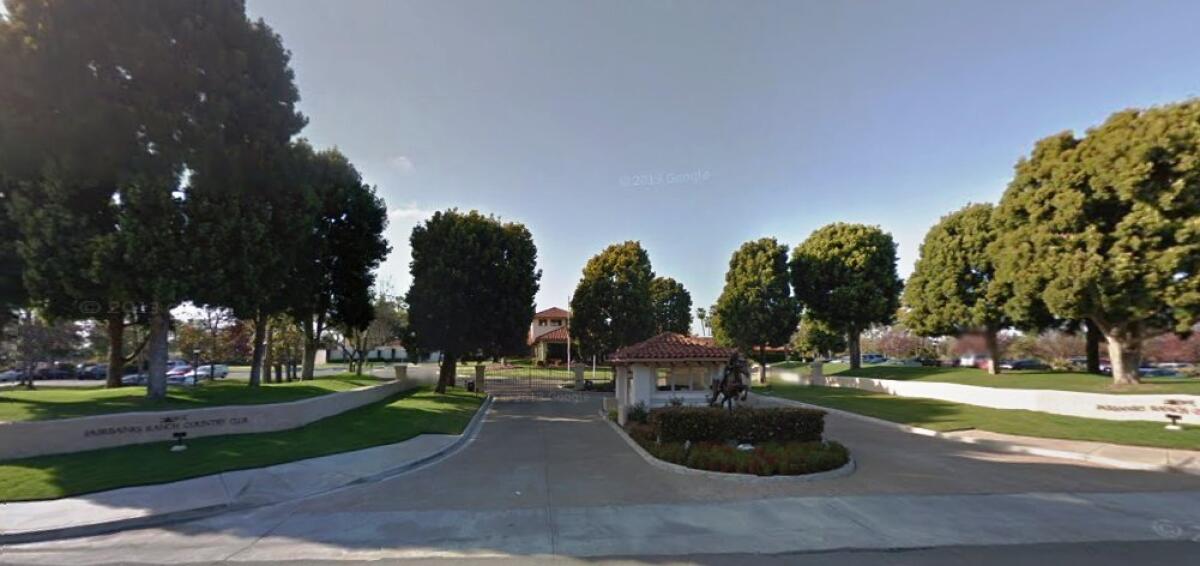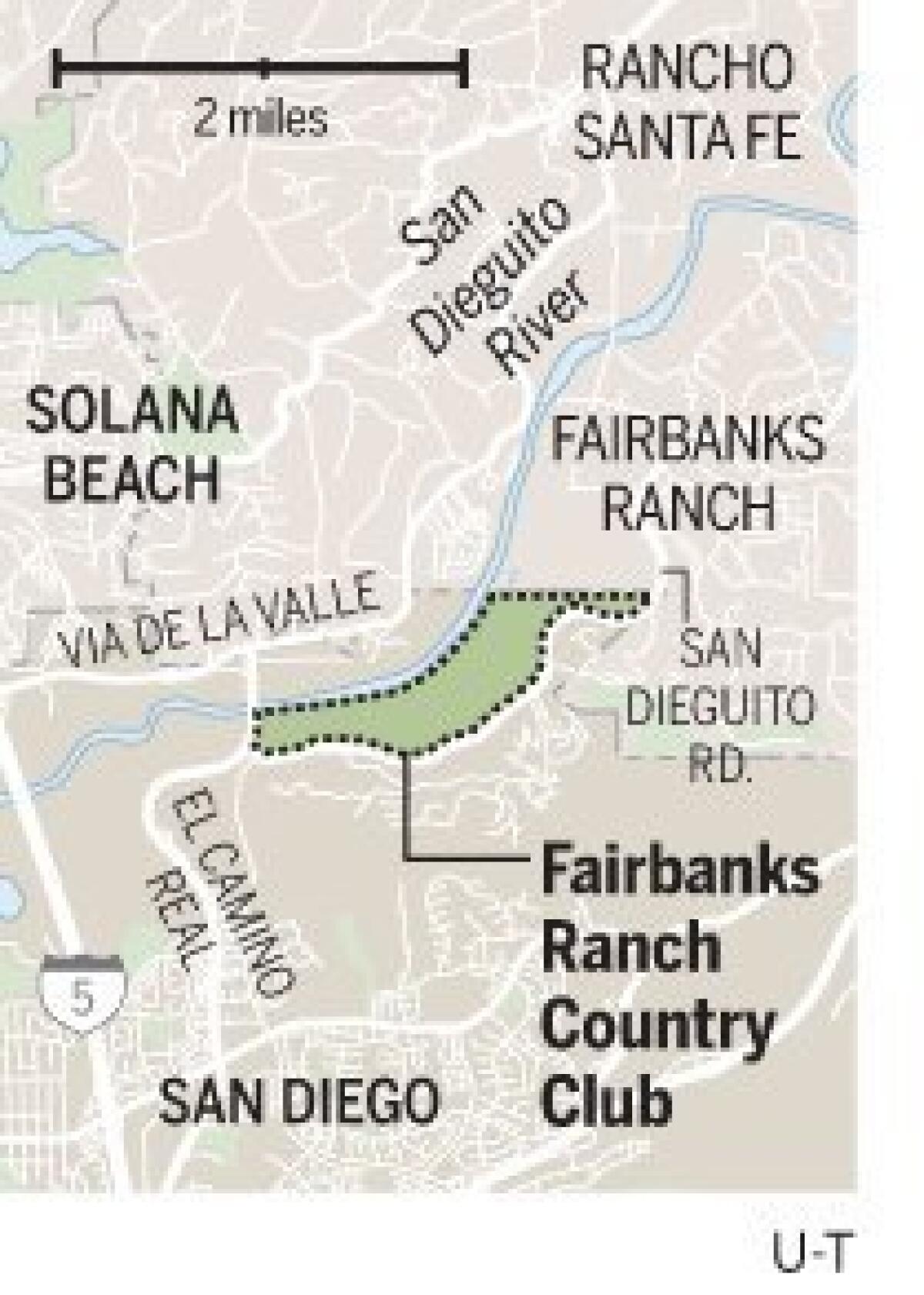Fairbanks golf club sale pending

Manchester, Mickelson buying 3-course club from members
The Fairbanks Ranch Country Club, site of the 1984 Summer Olympics equestrian events, is being sold to U-T San Diego Publisher "Papa" Doug Manchester and golf legend Phil Mickelson by its roughly 400 members.
Board President Mike Kendall said told members Thursday that Manchester and Mickelson had a signed a letter of intent and details will be shared at the annual meeting Sept. 9. The members will have to approve the sale.
“We are excited to have two such prominent community leaders and successful club owners partner to make the ongoing investment in facilities, programming and execution necessary for FRCC to maintain its position as one of the premier country clubs in San Diego on a long-term, sustainable basis,” Kendall said in an email to members.
The terms and conditions were not disclosed, but Manchester said in an email, “Phil and I look forward to making Fairbanks the best that it can be.”

The club, located north of San Dieguito Road and east of El Camino Real, includes three courses, tennis courts and a club house on 377 acres under a 61-year lease by the city of San Diego due to expire in 2044.
Mayor Kevin Faulconer’s office said the club made $922,561 in lease payments last year and $442,170 so far this year.
Club manager Steve Wittert did not return calls to discuss the deal or the state of the club.
But a former board president, Louis Ferrero, said the Manchester-Mickelson bid came out of an earlier proposal to sell to ClubCorp, operator of the University Club in downtown San Diego, Morgan Run Club & Resort in Rancho Santa Fe and the Shadowridge Golf Club in Vista.
While ClubCorp offered top management credentials, Manchester offered a more ambitious improvement plan and a link to his Grand Del Mar property in Carmel Valley, Ferrero said.
“It’s a very ‘rich’ proposal,” Ferrero said. “He likes to do everything world-class. He’s got a plan — he’s going to do it right.”
Ferrero, who was not involved in negotiations, said two swimming pools and a full-scale health club are expected to be built and the tennis and golf facilities upgraded, all with the hope of attracting families and younger people to join.
By selling the club, the members will escape having to pay special assessments that at one time were estimated to cost $8,500 each, according to a slide show presentation on the club website.
Current dues stand at $1,234 per month for golf members and $410 for social members, but the club’s membership office said they are likely to drop under new ownership, while the initiation fees may rise from the present $18,000 for golfers and $2,740 for others.
Jeff Woolson, the CBRE commercial broker who worked on the sale, was not authorized to give details. But he said country clubs in general were hit hard during the recession and many are on the market. He also said clubs are having trouble attracting Gen Xers, who have other interests, and aging Baby Boomers, who lost money in the downturn.
“The golf market took a big hit during the recession,” Woolson said. “The space was overbuilt. A lot of people took golf out of their diet due to the recession and financing dried up to acquire them. “
He said besides ClubCorp, Manchester and Mickelson, other buyer groups showed “tremendous interest.”
The club property was once part of a larger 789-acre parcel of land in the San Dieguito River Valley owned by housing developer Ray Watt. In 1981 he won approval to build 341 homes in exchange for donating 615 acres to the city. The 2010 census figures show that the community is home to 1,037 residents with a median household income of $172,700.
Watt leased back the golf course site back from the city and predicted the city would earn more than $1 billion over the life of the lease.
The Olympics served as a built-in marketing tool to sell homes and attract golf club members. Britain’s Prince Philip inspected the site and proclaimed the soil perfect for horses.
Since the Olympics, the club and various investors have offered to buy the property back from the city. In 1996 then-City Manager Jack McGrory recommended the city take $4 million for the property at a time when underwriting the cost of hosting the Republican national convention in San Diego was getting costly.
Five years later the club offered to pay $14 million for the land, but the city declined when the club wanted the city to carry back $10.5 million of the debt. The club then asked for a 30-year lease extension, but discussions went no further when the city said the rent would have be renegotiated.
Get U-T Business in your inbox on Mondays
Get ready for your week with the week’s top business stories from San Diego and California, in your inbox Monday mornings.
You may occasionally receive promotional content from the San Diego Union-Tribune.

